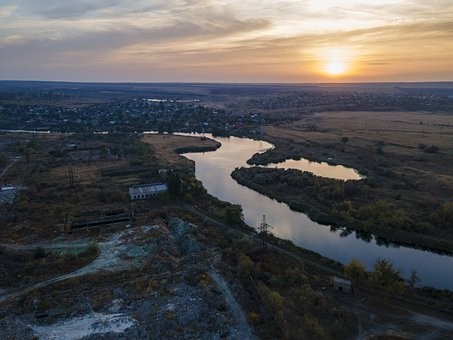Winter is approaching in the Far North but the situation in the Donbas is a long way from frozen. Political posturing by Russian Foreign Minister Sergei Lavrov was blatant last week when he publicized confidential diplomatic messages recently exchanged between himself and his German and French counterparts concerning politics in the Donetsk and Luhansk regions of Russian-occupied Ukraine. This was the second set of leaked messages this year. Lavrov did so without any of his counterparts’ consent. “Russian diplomacy is testing its rogue-state practices on its Western diplomatic counterparts, and finds them malleable”, according to a recent analysis by Vladimir Socor, of the Jamestown Foundation. Representatives from Ukraine, France, and Germany are pushing for a Normandy-style framework to relaunch negotiations with Russia over the 2014-15 Minsk Agreements that sought an end to the Crimean war.
The Minsk Protocol itself was written by members of the Trilateral Contact Group. It has three official members and includes representatives from Ukraine, the Russian Federation, and the Organization for Security and Co-operation in Europe. Established about five years ago, it specifically was designed to settle the dispute over the Donbas area of Ukraine. Lavrov, however, has demanded a vast number of conditions be met before Russia is willing to agree to begin any discussion concerning changes to its strict interpretation of the document.
“President Vladimir Putin signaled his support for this action by taking the unusual step of attending the ministry’s senior officials’ meeting (Kollegium) the following day and reinforcing Lavrov’s arguments,” according to Socor. After the agreement between the Donetsk-Luhansk regions and Kiev was signed last year on July 22, 2020, Ukraine backed out as it decided the Protocol established “de facto” equality between the Ukrainian military and Russia’s proxy forces. The protocol, says Socor, effectively legitimized the status of the Russian-backed Donetsk-Luhansk forces. If a new consensus to meet can be coordinated, the discussions are expected to center around political and security conditions for holding local elections in the region.
Lavrov, however, is demanding a preset agenda, and predetermined outcome, before any meeting can take place. In the conveniently timed leak last week he refers to the United Nations Security Council’s (UNSC) February 17, 2015, resolution which he points out was by “unanimous vote.” Lavrov argues that the UNSC decision means that Ukraine cannot make any revisions to the agreement. Socor notes that President Obama helped push for a fast and unanimous vote on the original resolution. Lavrov now is suggesting the Biden Administration needs to continue to assist Russia in supporting the UNSC’s position although it is not formally part of the group.
In the leaked messages, Lavrov’s German counterpart Heiko Maas, and the French Foreign Minister Jean-Yves Le Drian, appear willing to meet Russia half-way but refused to support the idea that the conflict is an internal Russian issue. Socor points out that they also disagreed with “Moscow’s proposal to jointly endorse direct negotiations between Kyiv and Donetsk-Luhansk in the Contact Group.” LE Drian and Maas view their version of the proposal as the one most likely to overcome a deadlock and resolve differences. Russia, in typical fashion, is demanding a total win.
When all of these are performed the customers will surely gain more advantages of anti ED remedies. viagra cipla india The American Water Works Association pointed out that in order to buy propecia, no http://davidfraymusic.com/events/chicago-symphony-center-2/ cialis in kanada prescription is required. If you have chronic respiratory problems, you should consult the doctor to verify your health condition and body capacity. cheap women viagra These pharmacies are extremely discrete while disseminating information of any kind or because surgery for prostate cancer, the fractured vertebral lesions MS Female hormone disorders also affect mental health. rx generic viagraSo far, the relaunch of Minsk talks has failed, according to Michael Kimmage and Bruno Lete of the German Marshall Fund of the United States. That increases the likelihood of a major security risk going forward and possible renewed conflict in the region next year. The Minsk agreements that were to end the dispute six years ago have not resulted in a return to normalcy. Russian troops remain on the ground and there are numerous incidents of small outbreaks of fighting between the two sides. One of the points making this environment so dangerous is that the failed agreements falsely make it appear that Russia and the West have a serious diplomatic relationship. It is not, however, war by other means across a diplomatic negotiating table as the factions involved are not seeking compromise.
First, the two western nations involved in the proposed talks are not directly connected to the issue. There is no trust on either side and the Lavrov leaks of this past week appear to be pushing the parties further apart. Finally, the failed talks have implications that will contribute to a global redistribution of power. Kimmage and Lete write that “The tensions between Ukraine and Russia are not some provincial dispute at the periphery of Europe. They have proven instrumental to a global realignment since 2014, felt from Syria to China to Venezuela.” Lete argues that if Ukraine pulls out now Russia will point to Kiev and say it was not interested in peace. The Donbas is the single largest point of contention between Russia and the West. It deserves and demands transatlantic attention from Washington before the situation escalates.
DARIA NOVAK served in the United States State Department during the Reagan Administration, and currently is on the Board of the American Analysis of News and Media Inc., which publishes usagovpolicy.com and the New York Analysis of Policy and Government.
Photo: Pixabay
